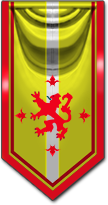Factions are the primary political divisions of the Star Traders civilization. Their roots go back before the Exodus when they were united by the Prophet Shalun under the Faction Accords to overthrow the Guild and their Narvidian overlords. Each faction has its unique culture, customs, traits (also see Faction Traits) and prejudices. While individual faction rulers may set their own trade laws on the worlds they control, all worlds ruled by a particular faction recognize an individual Star Trader's Trade Permit, Edict, Military Rank, and Reputation within this faction. Factions also participate in conflicts with other factions, which change their hostility level and trade relationships as a whole. Worlds and Star Traders that do not belong to a specific faction are known as Independent and do not recognize reputation or participate in conflicts.
Every quadrant is controlled by a particular faction. Factions also controls zones within each quadrant. It is faction reputation and conflicts that determine a large amount of what an individual Star Trader can do in any zone. In general, it is the faction with the largest number of zones that controls a quadrant.
The Factions of Star Traders are split into two types — the Great Houses and the Syndicates.
Great Houses[ | ]
As defined under the Faction Accords, the Great Houses are organized along hereditary lines and place power in the hands of a small, privileged ruling class that changes over time. The entire population of a Great House is organized in a caste system, categorizing individuals and families into tiers by social standing and function--traders, military, laborers. Membership in the ruling class of this system is permeable, but the ability for common citizens of the Faction to ascend into the nobility is limited by acquisition of sufficient power, wealth, military prowess and political influence. Such ascension often takes the dedicated work of generations within a single family to rise through the caste system.
Families within the Great Houses are sprawling and extremely large. One only has to mention Javat and the line of the Leiwin is sure to come to mind, just as their are thousands claiming the name Mykatte within Thulun, or the famous Seith of Steel Song. Within these extreme large family structures, power tends to gravitate to smaller nuclei of power players, often across close bloodlines. Therefore, while there may be multiple Leiwin who hold Javat Princedoms on systems, and those within a few familial circles are part of their power center, there are still large branches of the Leiwin family striving to rise up from the lower castes.
The feudal title of Prince is awarded to a family head within the Great House structure. This title stays within the family permanently, passed through the line of inheritance. Only a major disgrace or complete extinction of the family line has been known to dislodge a Princedom from within a single family within a Great House.
It is notable that marriage across Faction lines is looked down upon and discouraged within the Great Houses. Often, those who do find love across such boundaries will consider fleeing into Independent space or joining a Star Traders crew to make a new life away from the judgment of their Faction-loyal peers and elders.
| List of Great Houses | ||
|---|---|---|
Clan Javat "Check before you dig" 
|
House Thulun "Nobility is earned" 
|
Clan Steel Song "Peace is an illusion" 
|
Alta Mesa "Superiority in flight" 
|
Clan Moklumnue "Trade unites us all" 
|
Clan Zenrin "We are all memories" 
|
Syndicates[ | ]
The Syndicate organization is also permitted under the Faction Accords, and adopts a very different philosophy which replaces the hereditary family unit with the cohort. Where a hereditary family structure passes power and property through a bloodline, the cohort structure encourages the adoption of individuals based solely on their ability, talent and experience. While traditional family such as marriage and children still exist within cohorts, these ties are considered second to the value of proven talent and achievements. An adopted child is just as valuable as a child of blood, and truly they are only measured by their achievement. Cohorts often compete to recruit the most promising candidates from academies and universities. In many cases, and especially when there is recruiting competition, an adoption dowry is paid to the cohort that the child will leave as they join their new cohort.
Cohorts, like families within the Great Houses, come in a great range of power, ability, and focus. Most cohorts have become specialized in order to be the most profitable and powerful as possible. For example, some cohorts are organized as an interstellar company of merchants, while others may run spice farming operations, and others are completely dedicated to the military or political sphere. Cohorts come in all shapes and sizes, and at the bottom of Syndicate society, there are cohorts that will adopt any and all comers. These cohorts are formed into vast worker’s unions, providing raw labor where needed, or training their people in a specific field of work, such as starport cargo operations.
Advancement in the Syndicate system is solely based on performance as measured by success within the Faction, and demonstrated by achievements in the field of military, political and economic arenas. In stark contrast to the Great Houses, the Syndicates put no weight in heredity for selecting the next generation of leadership.
A Princedom within the Syndicates is granted to a leader who have proven their prowess within the political sphere. Most often, these proving grounds are in the contests of power against other Factions as well as internally against rivals. Once a Princedom has been granted, the Prince or Princess will control the line of succession within his or her cohort, and in general it is uncommon that the next-in-line would be of blood kin as opposed to a stellar adopted and groomed candidate.
Detractors of the Syndicates system argue that nepotism runs wild within the structure as a whole. Of course, the children of those who have obtained great power and influence have a better chance to rise to places of power within the cohort structure, but they must compete to do so against their peers on a relatively flat playing field. In the Syndicates, some parents will disown a child who is deemed to have failed to live up to the expectations of the cohort. These disowned children must then find a lower cohort to adopt them, where their lesser achievements meet expectations.
Within the Syndicates, marriage across Syndicate boundaries is not discouraged, though it is almost always a guarantee to blunt one’s course to wealth and power, if that is what you seek. If a Syndicate member attempts to marry into a Great House then the expectation is that they have renounced their citizenship within the Syndicate and should join the inferior Great Houses.
| List of Syndicates | ||
|---|---|---|
Cadar Syndicate "Through strength, peace" 
|
De Valtos Syndicate "Everything has a price" 
|
Rychart Syndicate "Knowledge is power" 
|
Independents[ | ]
While not technically a faction, there are both Independent zones and Independent space faring Star Traders. Independents are just that; they do not work together and the player can not gain or lose reputation with them. Independents do not participate in conflicts.
The Hunna[ | ]
The Hunna are seen as a freedom fighting group of individualists to some, and organized terrorists to others. They are legally Independents, but tend to keep their internal allegiance hidden. Thus, while there are some Indie owned zones, there are no known Hunna controlled zones.
Templar[ | ]
Templar are composed of three sub-groups: The Templar Militant who wield the mighty Leviathan Mechs (also the main characters in Templar Battleforce), the Templar Arbiters, who ensure Shalun Law is upheld when Faction Citizens might otherwise attempt to bend it, and the Templar Augurs, social masterminds in service to the courts of certain lineages of Faction princes/princesses.
| Other | ||
|---|---|---|
Independents "Freedom at any cost" 
|
Hunna "Fighting for right" 
|
Templar "The might of Shalun" 
|
